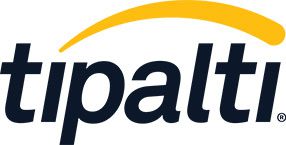
Yet such seemingly logical conservatism runs the risk of missing four interlinked opportunities:
- improving financial accuracy, discipline, corporate governance and compliance
- releasing professional expertise (to deliver more satisfying – for both individuals and employers – financial results)
- facilitating higher-quality inputs into the strategic, rather than just the tactical, shaping of the future business
- evolving the overall finance function from being a transaction-focused cost centre into one which seeks actively to support the business (and is seen to be doing so).
Let us examine each of these, especially in the light of what automation can offer.
Improving the finance function
Few CFOs/Financial Directors will argue that financial accuracy, discipline, corporate governance and compliance are not the essence of good accounting practices. Yet an examination of the existing processes that deliver financial accuracy, discipline, corporate governance, and compliance will likely flag areas where problems occur (whether seen or unseen). One simple example demonstrates this: the use of spreadsheets – for everything from assembling inputs to driving consolidations to preparing reports and even summarising some areas of compliance.
Yet dependency on spreadsheets exposes businesses to risk, especially if those businesses rely on them for business-critical functions. If spreadsheets play an integral role in daily and/or periodic operations, assessing the extent of such dependencies is an imperative. In addition, most spreadsheet operations do not provide automation, (though they may have appeared to offer this when originally introduced). As research by University of Hawaii professor and spreadsheet expert, Ray Panko has shown, the percentage of errors increases the larger and more complex a spreadsheet is. Instead, a more systematic approach is necessary. One which exploits ‘real’ automation if CFOs/FDs are to satisfy the requirements for financial accuracy, discipline, corporate governance and compliance.
Freeing up resources
A different aspect of this involves assessing how businesses use professional expertise at all levels, from CFO/FD down. Performing manual, repetitive and mundane tasks rarely stimulates. Rather, it inhibits and depresses staff. Releasing professional staff from such activities, by automating these activities is good both for most businesses and almost all staff. The latter become both more interested and engaged. The result is better financial management. A good question for CFOs/FDs to ask themselves is: what professional talent do I possess that could be released if I could introduce automation where it will have an impact?
Creating a strategic finance function
A desire to facilitate higher-quality inputs into the strategic, not just the tactical, shaping of the future business seems like common sense. The key questions, however, are:
- How much of the activity of a finance department is oriented to the day-to-day (tactical)?
- How much time focuses on considering business strategy implications?
A simple test for CFOs/FDs is to ask: how much time per week (or month) do I, or my staff, spend on issues that are relevant to next year and subsequent ones?
Evolving finance
Intimately associated with this is that most CFOs/FDs have a desire to evolve:
- from the finance function being seen as a necessary (though not always wholly desirable) transaction-focused cost centre
- to becoming a centre of expertise which colleagues across the broader business recognise as actively supporting both the planning as well as operation of the whole enterprise.
A significant aspect to consider is whether a business feels as if it is outgrowing its financial management capabilities. Is it delivering, for example, manual execution of operations consuming more and more of financial professionals’ time? Put a different way, do the existing financial systems and controls provide the flexibility which could enable growth. For SMEs, this is a crucial consideration. Expansion is one way to survive in today’s business environment which has so many challenges (post Covid-19 recovery to inflation to supply chain pressures to recruitment) to overcome.
Conclusion / Taking a step back
In short, the big picture case for automating those business functions which can show a positive return (automation does not necessarily mean all business processes) is a blend of factors. Some of these will be defensive; others will be about enabling people to enjoy more rewarding work. The most important will involve enabling further business growth.
In this context CFOs/FDs should be asking, if they do not know:
- what is the number of financial transactions the business processes each week (or month) and the average cost per transaction-type?
- what are the average transaction processing times and trends (especially for sales and for purchases)?
- the transaction failure and/or exception rates?
- what are the finance staff turnover rates (and the average cost and time to replace a financial staff member)?
Without understanding such metrics, making decisions about whether to automate business functions will likely have to be taken in a vacuum and be near-impossible. Conversely, possessing such metrics should provide both insights into how the finance department is functioning as well as the business justification to move ahead.
To learn more about what automation exists for the finance function and how it can benefit your organisation, Tipalti has sponsored an Enterprise Times white paper, which is downloadable here.

Tipalti enables high-growth companies to scale quickly by making payables strategic with operational, compliance, and financial controls. Companies can efficiently and securely pay thousands of partners and vendors in 196 countries within minutes. Thousands of companies, such as Amazon Twitch, National Geographic, Business Insider, Hopin, Cazoo and Time Out use Tipalti to reduce operational workload by 80 percent and accelerate the financial close by 25 percent, while strengthening financial controls and spend visibility.

























